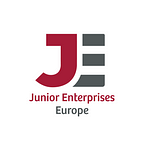A GLOBAL CALL FOR EDUCATION
The Paris Declaration — This declaration arose from the educational crises and inequalities exacerbated by the COVID-19 pandemic.
On the previous November 10th, UNESCO co-hosted, alongside the Government of France, the high-level segment’s Global Education Meeting at its headquarters in Paris. In this meeting were present Heads of State and Government and Ministers of Education from more than 40 countries.
On the same day, The Paris Declaration was adopted. It consists of an appeal instituted by UNESCO and France to increment investment in education due to the COVID-19 crisis. The declaration aims to renew national and international leaders’ commitments to invest in education — domestically and internationally — and to accelerate progress towards the Sustainable Development Goal 4 (Quality Education). This SDG consists of ensuring inclusive and equitable quality education and promoting lifelong learning opportunities for all.
It is expected to create an investment in key policy priorities for recovery and increased progress towards SDG 4. That investment must translate into equitable quality care and education from the earliest age, teachers’ training and professional development, youth employability skills and digital transformation of the education sector.
With the declaration, it will be possible to monitor Member States’ progress and international actors’ contributions. There is also a commitment to encourage dialogue and cooperation in finance, research, policy analysis, advocacy, knowledge sharing and capacity development.
The weight of the pandemic on education
“The COVID-19 pandemic has come to underscore for everyone around the world the critical importance of education as a global public good (…) If we do not invest in education now, the cost will be much higher for generations to come” — Audrey Azoulay, UNESCO Director-General
COVID-19 has significantly impacted children’s learning and well-being. Even before the pandemic, there were a lot of difficulties in progressing towards the 4th goal by 2030.
In 2020 it was stated that one hundred million more children than before failed to demonstrate basic reading skills. Children are starting to mirror the consequences of the crisis that exacerbated persisting inequalities.
Quoting The Sustainable Development Goals Report 2021
“The pandemic is projected to cause an additional 101 million children (roughly 9 per cent of those in primary and lower secondary school) to fall below the minimum reading proficiency threshold, increasing the total number of students falling behind to 584 million in 2020. This wipes out the progress achieved in education over the past 20 years. Similar declines are observed in the area of mathematics.”
Special efforts are needed to recover from the impact of COVID-19 on education. A call was made to every leader, national stakeholder and citizen around the world, to create a new social contract for education, based on the principles of the 4th SDG and with the hope of commitment towards investing in education for the future of humanity.
Written by Mariana Nunes, Public Affairs Manager at JEE
